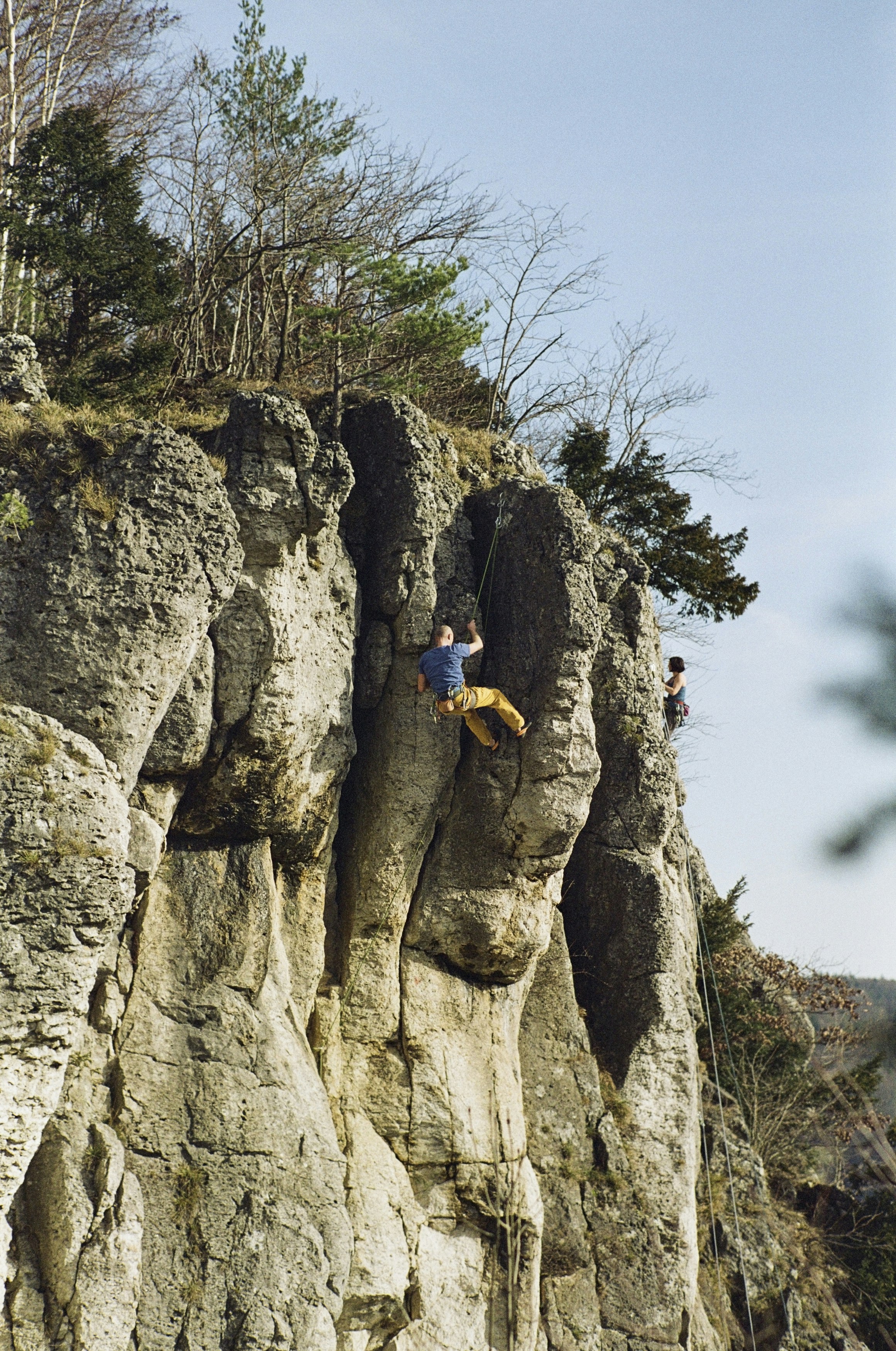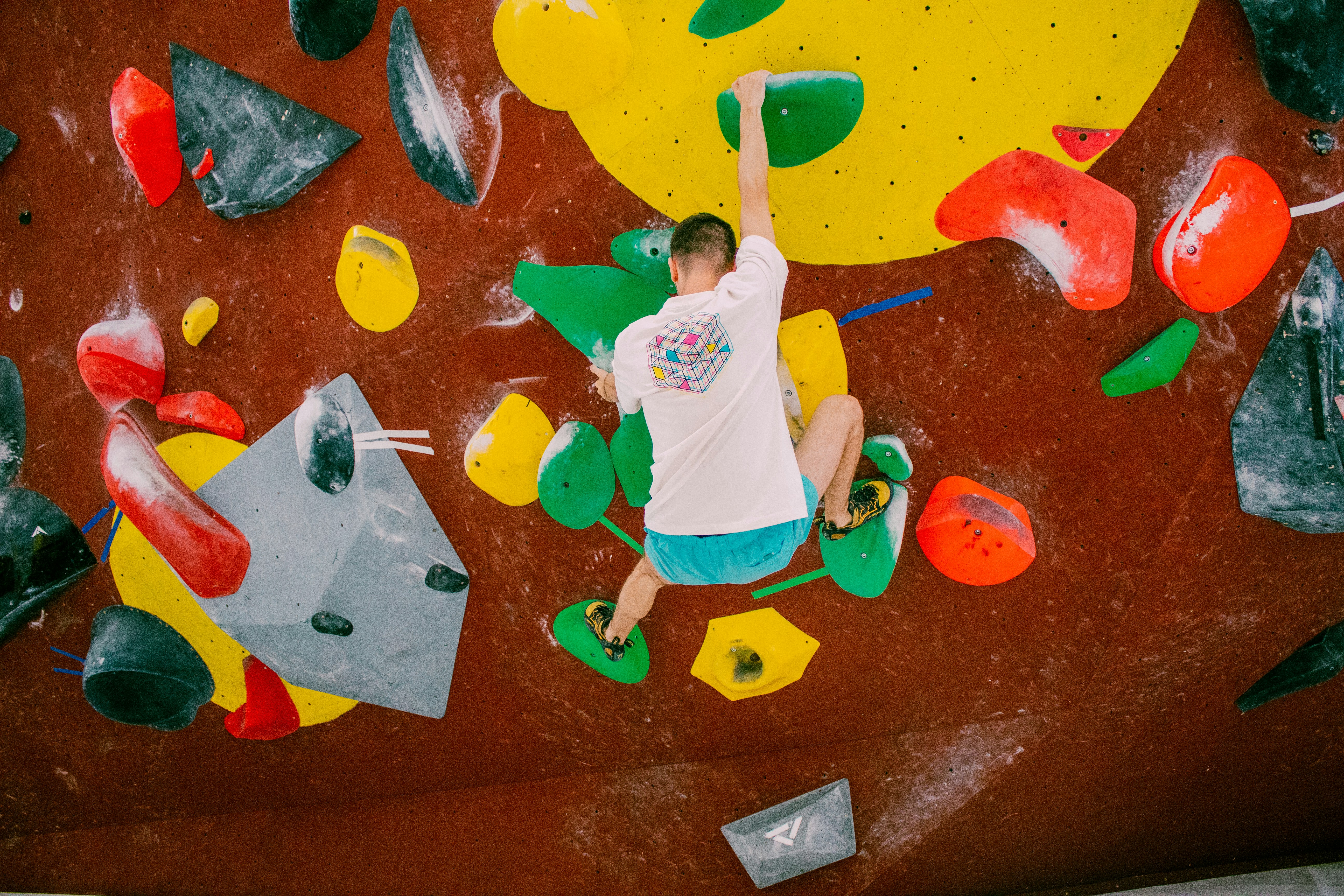You know that feeling when you're crushing routes at your local gym, and someone casually mentions you should try a competition? Maybe you laugh it off, thinking competitions are for "real" climbers. But here's the thing - competition climbing has become incredibly accessible, and the community is more welcoming than you might expect.
Since climbing hit the Olympics, the sport has exploded in ways that benefit everyone from weekend warriors to aspiring pros. Local gyms are hosting more competitions, the formats are beginner-friendly, and honestly, there's no better way to push your limits and meet people who share your obsession with moving up walls.
Understanding the Competition Landscape
Competition climbing might seem intimidating from the outside, but it's actually three distinct disciplines that each offer something different. Speed climbing is pure adrenaline - athletes race up a standardized 15-meter wall in under six seconds at the elite level. It's like drag racing, but vertical. Even if you're not naturally fast, there's something addictive about chasing your personal best time.
Bouldering competitions are where most gym climbers feel at home. These are short, powerful problems without ropes - think of the hardest four or five moves you can imagine, strung together in creative ways. The beauty of comp bouldering is that it's not just about being strong. Route reading, problem-solving, and mental game often matter more than raw power.
Lead climbing brings that traditional rope-climbing element into competition. Athletes climb as high as possible on increasingly difficult routes, and there's something beautifully pure about it. You either make the move or you don't, and gravity is the ultimate judge.
What Your First Competition Actually Feels Like
Let's be honest - your first competition will probably be a mix of excitement and terror. But here's what might surprise you: most local competitions are incredibly welcoming to beginners. The climbing community has this unspoken rule about encouraging newcomers, and you'll find people genuinely excited to see fresh faces.
You'll typically encounter multiple difficulty categories, so you're not thrown in with people who've been competing for years. The beginner category exists for a reason, and there's no shame in starting there. Some of the most successful competitive climbers I know started in those beginner divisions, learned the ropes, and gradually worked their way up.
The atmosphere is usually more supportive than competitive in the cutthroat sense. Yes, people want to perform well, but they also want to see good climbing. You'll find yourself cheering for others and receiving encouragement in return. It's one of the things that makes climbing competitions special compared to other sports.
As for gear, don't overthink it. Most competitions allow shoe rentals if you don't have climbing shoes yet. Bring a chalk bag, wear comfortable clothes you can move in, and pack some water and snacks. The gear requirements are minimal because the focus is on movement, not equipment.
Building Your Foundation
Here's where a lot of new competitors get it wrong - they think they need to be incredibly strong before competing. That's backwards thinking. Technique will carry you much further than raw strength, especially in your first few competitions. Focus on clean footwork, efficient movement, and reading routes well. Strength will come naturally as you climb more.
Consistency matters more than intensity when you're starting out. Climbing twice a week regularly will serve you better than one epic session followed by two weeks off. Your body needs time to adapt to the specific demands of climbing, and your brain needs time to develop movement patterns.
Don't get stuck climbing the same style of routes. If you always gravitate toward juggy overhangs, force yourself onto slabs and technical faces. Competition setters love to throw curveballs, and versatility will serve you well when you encounter something completely outside your comfort zone.
The Mental Side Nobody Talks About
Competition climbing is at least 50% mental, but most beginners focus entirely on the physical preparation. Start practicing the mental game early. Climb in front of people when possible - have friends watch you attempt hard problems. The feeling of being observed changes everything, and it's better to experience that in a low-stakes environment first.
Nerves are normal, even for experienced competitors. The key isn't eliminating them but learning to climb with them. Some of my best competition performances came when I was nervous but had practiced managing those feelings. Develop a pre-climb routine that helps you focus and feel grounded.
Problem-solving under pressure is a skill unto itself. In competitions, you often can't watch others attempt your problems, so you need to develop independent route-reading abilities. Practice this by attempting problems without watching others first, or by having someone set problems specifically for you to read cold.
Finding Your First Competition
Your local climbing gym is the best starting point. Most gyms host regular competitions, and they're usually designed to be beginner-friendly. The staff knows their community and will often go out of their way to make newcomers feel welcome. Don't be afraid to ask questions - gym staff and regular competitors are usually happy to explain formats and give advice.
If your gym doesn't host competitions, look into regional climbing organizations. USA Climbing sanctions events across the country, and they maintain beginner-friendly divisions. Youth climbing leagues are another great option if you're younger, but don't overlook them if you're an adult beginner - many have open categories.
The key is starting local and small. You don't need to jump into a major regional competition for your first experience. A gym comp with 20 participants can be just as valuable for learning the ropes as a big sanctioned event.
Common First-Timer Mistakes (And How to Avoid Them)
Every new competitor makes similar mistakes, and knowing about them ahead of time can save you some frustration. The biggest one? Overtraining right before your first competition. I've seen people cram training sessions in the weeks leading up to their first comp, thinking they need to get stronger fast. This usually backfires - you show up tired, sore, and more likely to get injured.
Another common mistake is focusing too much on what others are doing. You'll be tempted to watch every other climber and compare yourself constantly. This is natural, but it's also distracting. Your goal for your first competition should be learning the format, experiencing the atmosphere, and having fun. Performance comes later, once you understand how competitions work.
Many beginners also underestimate the importance of warming up properly. Competition climbing puts different demands on your body than regular gym sessions. Take the warm-up seriously, even if it feels like you're wasting time. A good warm-up can make the difference between feeling strong and confident versus tight and hesitant.
What Success Actually Looks Like
Success in your first competition isn't about winning or even placing well. Success is showing up, trying your best, and learning something about yourself and the sport. Maybe you discover you love the problem-solving aspect of bouldering. Maybe you find that lead climbing's endurance challenge appeals to you. Or maybe you realize that the speed wall's pure simplicity is exactly what you've been missing.
Some people leave their first competition hungry for more. Others decide it's not for them, and that's perfectly fine too. The experience itself is valuable either way. You'll have a better understanding of what competitive climbing entails, and you'll have pushed yourself in a new way.
Don't get discouraged if you don't finish many problems or routes. Competition problems are designed to be challenging, and they're often significantly harder than what you'd normally attempt in the gym. The setters want to separate climbers by ability, so they're not going to make things easy.
Building Toward Your Second Competition
If you catch the competition bug after your first event, start thinking about what you want to improve for next time. Maybe your route reading needs work, or perhaps you need to build more endurance for lead climbing. The beauty of having that first competition under your belt is that you now have specific areas to focus on.
Consider finding a training partner who's also interested in competitions. Having someone to practice with, share nerves with, and celebrate successes with makes the journey much more enjoyable. The climbing community is built on partnerships, and competition climbing is no different.
Taking the Leap
Competition climbing offers something you can't get from regular gym sessions - a chance to test yourself against problems designed to challenge you specifically, in an environment where everyone else is pushing their limits too. The climbing community's supportive nature means you'll likely leave with new friends, regardless of how you perform.
Everyone started somewhere, and the climbing community remembers that. The person crushing the advanced category today probably has vivid memories of their first competition nerves. Most climbers are genuinely excited to see newcomers discover what they love about the sport.
Ready to take that leap? Find a local competition and sign up. Don't wait until you feel "ready" - you'll learn more in one competition than in months of regular gym climbing. The worst thing that can happen is you have fun and meet some cool people. The best thing? You might discover a passion that transforms how you approach climbing entirely.

